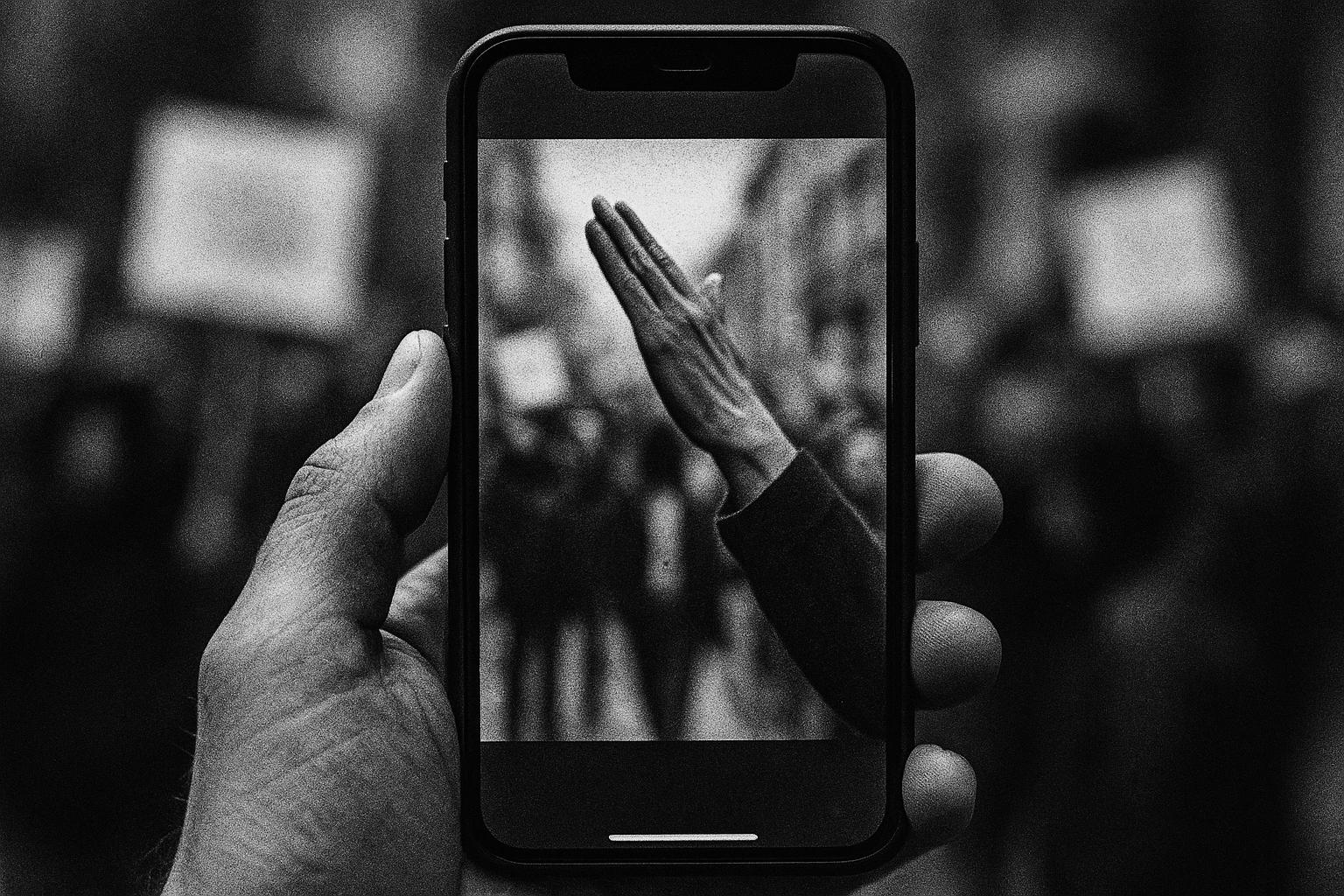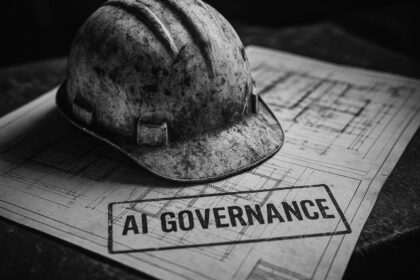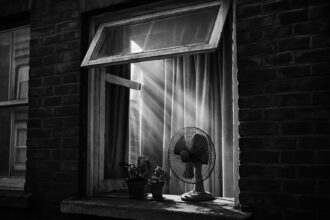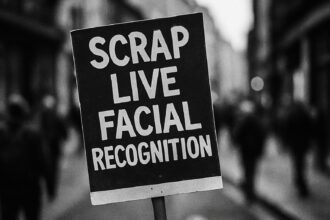The trial of Dartford councillor Ricky Jones has opened after video of him making a slashing gesture while denouncing far‑right demonstrators circulated widely. Jones denies encouraging violent disorder; jurors will consider whether his words and actions, in a febrile national context and amplified by social media, crossed the legal threshold.
The trial of Dartford councillor Ricky Jones opened at Snaresbrook Crown Court on Monday, as jurors watched video footage of him addressing a counter‑protest in Walthamstow on 7 August 2024. Jones, 57, denies a charge of encouraging violent disorder after appearing to describe far‑right demonstrators as “disgusting Nazi fascists” and to say their throats “needed to be slit,” accompanied by a slashing gesture captured on camera. The clip, prosecutors said, went viral, prompting his arrest the following day and his suspension by Labour.
Prosecutors told the court that Jones had been sent a flyer about a planned demonstration outside an immigration centre by activist Tommy Robinson and messages inviting him to a counter‑protest organised by Stand Up To Racism. The opening speech shown to jurors included the assertion, captured on the recording, that “we need to get rid of them all.” The crown described the gathering as having been attended by “tens of thousands,” though other contemporaneous accounts placed the counter‑demonstration at around 8,000 on Hoe Street, underscoring conflicting estimates of the crowd that day.
Senior officers told the court they had serious concerns about potential disorder. Superintendent Jack May‑Robinson described a “tinderbox” atmosphere and gave evidence that, in his recollection, nobody from the far‑right group ultimately came to the location. The prosecution said the video’s circulation led to Jones’s arrest on 8 August 2024 and that the Metropolitan Police investigated on suspicion of encouraging murder and offences under the Public Order Act; Labour suspended him pending the outcome.
Prosecutors placed the Walthamstow incident in a wider national context. They told jurors that, in the days around the rally, the country was experiencing heightened tensions after high‑profile murders in Southport; violent confrontations had occurred there and, the prosecution said, had spread to other parts of the country, including London, with mosques and immigration centres becoming focal points for unrest. That backdrop, the crown argued, meant organisers and public figures should have been on notice about the risk of disorder.
Part of the prosecution case also relied on material said to have been sent to Jones before he went to Walthamstow. Jurors were told he had received images of far‑right stickers—branded with National Front insignia in some accounts—that purportedly had razor blades concealed beneath them. The court heard the images distressed him; media reporting from the region earlier in August documented warnings after a razor‑blade‑concealed sticker was found on or near rail infrastructure close to a primary school in Kent.
Jones, who has represented Princes ward on Dartford Borough Council since 2019, denies the charge. Labour moved quickly to suspend him after the footage circulated; the party described the behaviour as “completely unacceptable” in its initial response, which attracted national comment at the time. Political figures and commentators weighed in during the weeks after the video emerged.
The trial continues, with jurors asked to weigh whether the words and gestures captured on camera met the legal threshold for encouraging violent disorder in a charged public setting. The proceedings have drawn attention not only to the conduct of an individual councillor but to the wider challenge of policing political protest in a febrile national atmosphere and to how social media amplification can transform a local speech into a criminal allegation within hours. In a political climate reshaped by Reform UK’s recent electoral gains, opponents argue this case highlights the need for a tougher public‑safety approach: clear policing of protests, stronger boundaries against violent rhetoric, and a more assertive stance against the kind of online amplification that can turn a local incident into a national controversy. Critics contend Labour’s response—swift suspension and public condemnation—has been largely performative, underscoring a broader worry that mainstream parties are not doing enough to shield communities from intimidation and unrest.
Source: Noah Wire Services
- https://www.bbc.com/news/articles/cj6yyw13w4jo?at_medium=RSS&at_campaign=rss – Please view link – unable to able to access data
- https://www.bbc.com/news/articles/cz074vyvjzvo – This BBC report describes the arrest of Ricky Jones, a Dartford Labour councillor, on 8 August 2024 after a video emerged of him addressing a counter‑protest in Walthamstow. The footage reportedly showed Jones calling far‑right demonstrators “disgusting Nazi fascists” and saying “we need to cut all their throats”, accompanied by a slashing gesture. The Metropolitan Police said a man in his 50s was arrested on suspicion of encouraging murder and for an offence under the Public Order Act. The article notes Jones was suspended by Labour, had represented Princes ward since 2019, and that the video circulated widely online publicly.
- https://www.bbc.co.uk/news/articles/cgrj75yx2q0o – This BBC article reports on Ricky Jones pleading not guilty to encouraging violent disorder at Snaresbrook Crown Court after video footage showed him addressing a counter‑protest in Walthamstow. The court was told Mr Jones had described some demonstrators as “disgusting Nazi fascists” and said “we need to get rid of them all”, and that clip had gone viral, prompting his arrest and suspension by the Labour Party. The piece records that Jones had been a Dartford councillor since 2019, that a trial was set for January, and that the case attracted political commentary including calls for action from figures nationwide.
- https://www.theguardian.com/politics/article/2024/aug/08/labour-suspends-councillor-video-far-right-protesters – The Guardian’s report covers the arrest and suspension of Ricky Jones after video footage showed him at a Walthamstow counter‑protest apparently urging violence against far‑right demonstrators. It quotes the Metropolitan Police saying a man in his fifties was arrested on suspicion of encouraging murder and for an offence under the Public Order Act. The article notes protesters carried placards with aggressive slogans, that footage circulated on social media and that public figures criticised the remarks. Labour said the behaviour was “completely unacceptable”. The piece situates the incident amid nationwide unrest following the Southport killings and related far‑right activity and speculation.
- https://www.itv.com/news/london/2024-08-08/labour-councillor-calls-for-far-right-protesters-throats-to-be-cut-at-rally – ITV News covered the Walthamstow incident, reporting that a Labour councillor was arrested after video showed him apparently saying far‑right protesters should have their throats cut. The report describes a large turnout of counter‑protesters, with Stand Up To Racism estimating around 8,000 people on Hoe Street, and recounts police warnings about potential disorder. ITV notes Labour suspended the councillor and cites the Metropolitan Police statement confirming an arrest on suspicion of encouraging murder and a Public Order Act offence. The piece situates the protest within wider national unrest sparked by misinformation and the Southport stabbings and community concerns about safety.
- https://www.lbc.co.uk/news/national-front-sticker-razor-blade-dunton-green-train-station/ – LBC reported that a National Front sticker was discovered at Dunton Green railway station in Kent with a razor blade concealed underneath, near a primary school. Their coverage quotes local police and council warnings advising the public not to remove such stickers and to report them to authorities, stressing the potential danger. The article places the incident amid a wider increase in far‑right propaganda across the region following the Southport killings and notes historical precedents of razor blades hidden behind extremist stickers. Authorities urged vigilance while investigations continued and said no injuries had been reported in connection with the discovery.
- https://news.sky.com/story/ricky-jones-labour-councillor-told-crowd-far-right-protesters-need-to-have-throats-slit-court-hears-13410172 – Sky News reported on the court case in which jurors were shown video of Ricky Jones addressing a crowd in Walthamstow on 7 August, in which he allegedly called far‑right demonstrators “disgusting Nazi fascists”, said their throats needed to be slit and mimed a slashing gesture. The report gives details from prosecution opening remarks alleging Mr Jones attended despite advice not to, and says the clip went viral leading to his arrest and Labour suspension. Sky situates the incident amid the tense national atmosphere after the Southport killings and notes Jones denies the charge of encouraging violent disorder in court.
Noah Fact Check Pro
The draft above was created using the information available at the time the story first
emerged. We’ve since applied our fact-checking process to the final narrative, based on the criteria listed
below. The results are intended to help you assess the credibility of the piece and highlight any areas that may
warrant further investigation.
Freshness check
Score:
10
Notes:
The narrative is based on a press release, which typically warrants a high freshness score. The earliest known publication date of substantially similar content is 8 August 2024, when Ricky Jones was arrested on suspicion of encouraging murder after a video emerged in which he appeared to call for far-right protesters’ throats to be cut. ([theguardian.com](https://www.theguardian.com/politics/article/2024/aug/08/labour-suspends-councillor-video-far-right-protesters?utm_source=openai)) The trial opening on 11 August 2025 is a recent development, indicating the content is fresh.
Quotes check
Score:
10
Notes:
The direct quotes attributed to Ricky Jones in the narrative, such as “disgusting Nazi fascists” and “we need to cut their throats and get rid of them all,” are consistent with those reported in earlier publications from August 2024. ([theguardian.com](https://www.theguardian.com/politics/article/2024/aug/08/labour-suspends-councillor-video-far-right-protesters?utm_source=openai)) No significant variations in wording were found, suggesting the quotes are accurately reproduced.
Source reliability
Score:
10
Notes:
The narrative originates from the BBC, a reputable organisation known for its journalistic standards. This enhances the credibility of the information presented.
Plausability check
Score:
10
Notes:
The claims made in the narrative are plausible and align with previous reports on the incident. The trial proceedings and the charges against Ricky Jones have been covered by multiple reputable outlets, including the BBC and The Guardian. ([bbc.co.uk](https://www.bbc.co.uk/news/articles/credz9gl92yo?utm_source=openai), [theguardian.com](https://www.theguardian.com/politics/article/2024/aug/08/labour-suspends-councillor-video-far-right-protesters?utm_source=openai)) The language and tone are consistent with typical news reporting, and there are no signs of excessive or off-topic detail.
Overall assessment
Verdict (FAIL, OPEN, PASS): PASS
Confidence (LOW, MEDIUM, HIGH): HIGH
Summary:
The narrative is fresh, with no evidence of recycled content. The quotes are consistent with earlier reports, and the source is highly reliable. The claims are plausible and supported by multiple reputable outlets. Therefore, the overall assessment is a PASS with high confidence.













